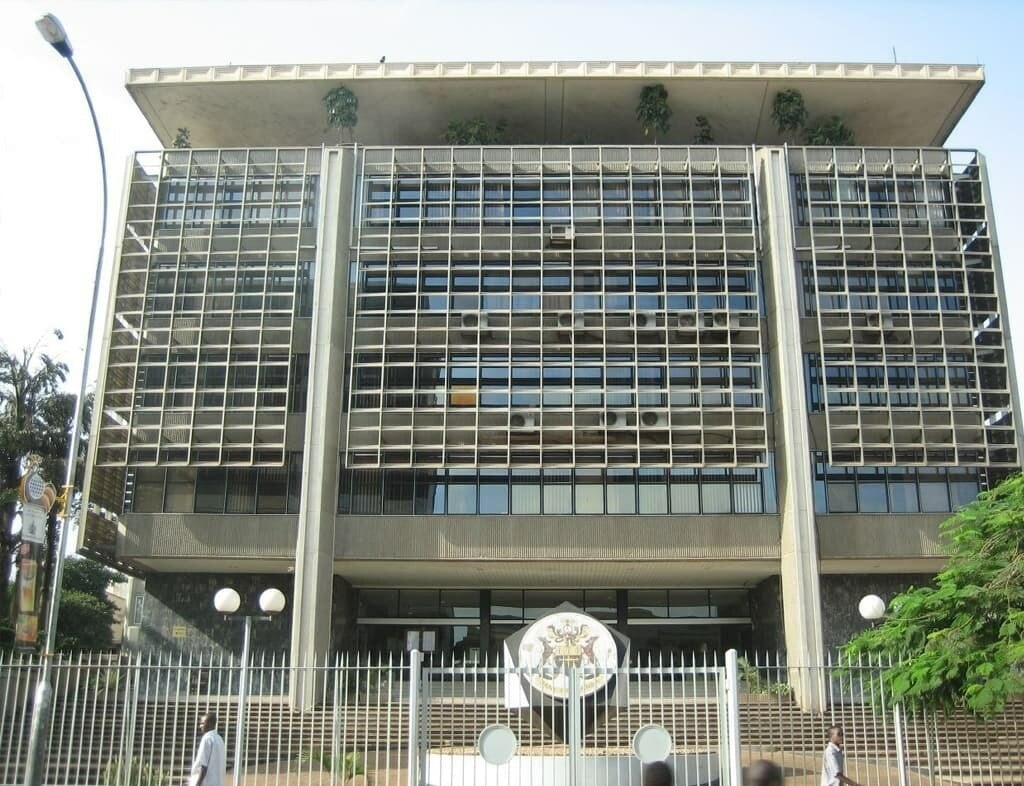- Uganda’s Bitcoin trading volume ranged between $50,000 and $60,000 monthly, despite there existing a ban imposed by the government
- Noah Baalessanvu, a crypto trader in Crypto Savanah, has claimed that various exchanges offer as low as $13.41(UGX 50,000) to start trading, accommodating plenty of new uses every month.
- In June 2021, the bank officially launched a regulatory sandbox framework that allowed fintech to test innovative financial solutions in a controlled environment.
The adoption of digital currency in Africa has significantly grown over the past few decades. More so, crypto in East Africa has shot up, pioneered by Kenya. Due to President Samia’s positive attitude toward digital currency, Tanzania also has an active drive towards the same. However, some countries in the region, such as Ethiopia, have strictly banned the use of crypto.
Nonetheless, here is one country that is steadily transitioning toward its crypto revolution, Uganda. There is still some tuning, but the Central Bank of Uganda has changed its heart toward the digital economy. It plans to establish new crypto regulations for the rising digital currency usage era.
Uganda is a prime example of how most African countries deal with cryptocurrency. However, we may attribute this sudden change of heart to its peers, Kenya and Tanzania, which have taken a positive approach to digital currency.
Uganda’s crypto state follows suit with the rest.
During the first stages of the crypto ecosystem, when Bitcoin only had Ethereum and few competitors, many failed to see its underlying potential. Until today, some view the concept of digital currency as a hoax and cannot comprehend its application in real life. Despite this, the concept of digital currency in Africa was plausible.
Mpesa is the driving force behind the massive use of crypto in East Africa, more so in Kenya. It ushered in the concept of digital money, which many views as a precursor to decentralized finance. Due to this, Africa’s crypto adoption soared exponentially, reaching heights that set records.
Also, Read African Central Banks present valid arguments against CBDCs and digital assets.
Unfortunately, its governments did not share the same adoptive spirit as its citizens. Traders and miners viewed crypto in East Africa as an alternative way of making money. However, governments viewed it as a front to weaken their economy. As a result, many African governments either banned crypto or refused to recognize it as a financial product.

The Central Bank of Uganda initially took a hostile take on digital currency.[Photo/Business-Recorder]
The Central Bank of Uganda was the same, as it refused to recognize the importance of digital currency. Uganda’s crypto state remained at a stalemate, only surviving under the sheer tenacity of its crypto traders who valued the revolutionary benefits of digital currency.
The lack of crypto regulation proved too big of a risk for the Central Bank of Uganda to take. Furthermore, many individuals need help understanding the cumbersome processes when regulating digital currency, which developers build to defy central control.
Ban on Crypto
Uganda’s financial regulator warned payments services providers from accommodating digital currencies within their system. The Central Bank of Uganda issued a statement declaring that it had yet to license any payment provider. This includes fintech and banks for facilitating crypto trades. Unfortunately, this pattern is all too familiar within African states.
Initially, many governments claimed that the lack of crypto regulations could spell doom for their fiat currency. Eventually, they either ban crypto or remain in a neutral state. This follows an increase in digital currency usage, as seen high adoption rate of crypto in East Africa. Despite the government’s fear, the benefits of crypto are valid and applicable.
Also, Read Nigeria 2023 elections: Is the Naira Scarcity a ploy to force eNaira adoption?
Thus, more individual traders end up sustaining their country’s crypto state. Finally, after the growth of the crypto ecosystem, the government soon realized that digital currency provides a proactive approach to its economy. This results in their governments deploying research teams to study other crypto regulations to implement one of their own. Many have undergone this systematic pattern, and this time, ita past Uagnda’s crypto state is heading to its final stage.
Uganda’s crypto state is sustained by its crypto traders.
According to LocalBitcoins, Uganda’s crypto state has steadily grown over the past few decades. In 2021, Uganda had a steady growth rate of 200 to 300 users per month. Its Bitcoin trading volume ranged between $50,000 and $60,000 per month. Due to its steadily declining fiat currency, the country’s citizen shad turned to digital currency as an alternative form of income. Many Ugandans have also claimed that crypto mining and trading have effectively saved lives within their harsh economy.
Mr Augustine Muhindo, a Cryptotrader in Uganda, has stated that digital currencies are traded locally on platforms such as Binance, Kucoin, Coinbase and Bitpesa. He claimed that Uganda’s crypto state is consistently growing as more users opt for decentralized finance for financial inclusion. Noah Baalessanvu, another crypto trader in Crypto Savanah, has claimed that various exchanges offer as low as $13.41(Shs 50,000) to start trading, accommodating plenty of new uses every month.
The effects of its country’s unstable economy cut across numerous professions within the state. Moses Semulya, a doctor at a Kampala hospital, claims that Bitcoin has offered numerous advantages over its fiat currency. He said, “I used to want to buy medical equipment online, but it was becoming hard. Transacting online is very expensive in Uganda with all the fees. Bitcoin is changing that, making things easier and faster. Right now, I would rather invest in Bitcoin and watch this space rather than buy a plot of land.“
Digital currency offers numerous advantages to its citizens, and despite the lack of crypto regulations, it has yet to stop them from exploring it. Ugandan Bitcoin miner Richard M. Bagorogo is an open advocate for the crypto ecosystem. He has gone around his community to educate his peers on the benefits of Bitcoin and how one can take addicted to it.
His slogan revolves around how he has earned more as a Bitcoin trader in one and a half years than he did in years as a teacher. Fortunately, thanks to Bitcoin, he could send his chair to international schools and affordable vacations to Dubai. Despite scientism, he teaches other new crypto traders how to salvage their livelihood from crypto trading.
Central Bank takes a positive step toward Uganda’s crypto state.
With the rapid rise of crypto in East Africa, it was only a matter of time before the Central Bank of Uganda took a positive take on crypto. The bank advised the Blockchain Association of Uganda to sharpen its knowledge of the sandbox regulations and invited its members to discuss the matter. Essentially these new initiatives invite crypto businesses to participate in its Regulatory Sandbox as a form of testing out the usability of crypto.
For some, the Central Bank of Uganda has looked into various variations of crypto regulation to address its rising use within the country proactively. In June 2021, the bank officially launched a regulatory sandbox framework that allowed fintech to test innovative financial solutions in a controlled environment.
Also, Read ChatGPT AI eases blockchain and web3 adoption by offering limitless information.
With this initiative, most fintech have opted to test cryptocurrency and see if its usability can improve the country’s slow economic growth. This news came just a few months before the warning issued to the same fintech companies it is accommodating.
Fortunately, this sudden change of heart is not new within crypto in East Africa. Tanzania previously banned the use of digital currency, but it swiftly changed its stance once the new government took charge. Nigeria, the top candidate for Africa’s crypto hub, banned the use of digital currency and, within the same year, implemented its CBDC, the e-maria.
Conclusion
Uganda’s crypto state is still in turmoil, but its Central bank has taken a positive initiative. Despite the recent crypto crash, its crypto trades are still growing, and its governments are noticing their rapid growth. Crypto in East Africa is a growing concept, and we might soon see the implementation of crypto regulation in one of three countries.
- SEO Powered Content & PR Distribution. Get Amplified Today.
- PlatoAiStream. Web3 Data Intelligence. Knowledge Amplified. Access Here.
- Minting the Future w Adryenn Ashley. Access Here.
- Buy and Sell Shares in PRE-IPO Companies with PREIPO®. Access Here.
- Source: https://web3africa.news/2023/05/26/featured/ugandas-crypto-state-takes-positive-turn/
- :has
- :is
- :not
- $UP
- 000
- 200
- 2021
- 2023
- 50
- a
- across
- active
- address
- Adoption
- advantages
- advocate
- affordable
- africa
- African
- After
- against
- AI
- All
- also
- alternative
- an
- and
- Another
- any
- applicable
- Application
- approach
- ARE
- arguments
- around
- AS
- Assets
- Association
- At
- attitude
- Ban
- Bank
- Banks
- banned
- becoming
- before
- behind
- benefits
- between
- Big
- binance
- Bitcoin
- Bitcoin Miner
- Bitcoin Trader
- bitcoin trading
- blockchain
- blockchain and web3
- Blockdata
- build
- businesses
- but
- buy
- by
- came
- CAN
- candidate
- cannot
- CBDC
- CBDCs
- central
- Central Bank
- Central Banks
- Chair
- change
- changed
- changing
- charge
- citizen
- Citizens
- claimed
- claims
- coinbase
- community
- Companies
- competitors
- comprehend
- concept
- control
- controlled
- could
- countries
- country
- country’s
- Crash
- crypto
- Crypto adoption
- crypto crash
- Crypto ecosystem
- crypto hub
- crypto mining
- Crypto regulation
- Crypto regulations
- crypto traders
- crypto trading
- cryptocurrency
- currencies
- Currency
- Cut
- deal
- decades
- decentralized
- Decentralized Finance
- Declining
- deploying
- Despite
- developers
- DID
- digital
- Digital Assets
- digital currencies
- digital currency
- Digital economy
- Digital Money
- discuss
- Doctor
- doom
- drive
- driving
- Dubai
- due
- earned
- Eases
- easier
- East
- Economic
- Economic growth
- economy
- ecosystem
- educate
- effectively
- effects
- either
- Elections
- ENAIRA
- end
- Environment
- equipment
- Era
- essentially
- establish
- ethereum
- Ethiopia
- eventually
- Every
- example
- Exchanges
- existing
- expensive
- Exploring
- exponentially
- facilitating
- Failed
- familiar
- faster
- fear
- Fees
- few
- Fiat
- Fiat currency
- final
- Finally
- finance
- financial
- financial inclusion
- fintech
- Fintech Companies
- First
- follows
- For
- Force
- form
- Fortunately
- Framework
- from
- front
- Furthermore
- gone
- Government
- Governments
- Growing
- grown
- Growth
- had
- Half
- Hard
- Have
- he
- Heading
- Heart
- heights
- help
- here
- High
- his
- How
- How To
- However
- HTTPS
- Hub
- i
- if
- implement
- implementation
- implemented
- importance
- imposed
- improve
- in
- includes
- inclusion
- Income
- Increase
- individual
- individuals
- information
- initially
- Initiative
- initiatives
- innovative
- International
- into
- Invest
- invite
- invited
- Issued
- IT
- ITS
- jpg
- june
- just
- kenya
- knowledge
- Kucoin
- Lack
- Land
- launched
- License
- Life
- limitless
- Lives
- locally
- looked
- Low
- Making
- many
- massive
- Matter
- max-width
- May..
- medical
- medical equipment
- Members
- might
- miner
- Miners
- Mining
- money
- Month
- monthly
- months
- more
- most
- naira
- Need
- Neutral
- New
- new crypto
- news
- Nigeria
- Noah
- now
- numerous
- of
- offer
- offered
- offering
- Offers
- Officially
- on
- once
- ONE
- online
- only
- open
- or
- Other
- out
- over
- own
- participate
- past
- Pattern
- payment
- payments
- pioneered
- plans
- Platforms
- plato
- Plato Data Intelligence
- PlatoData
- plausible
- Plenty
- positive
- potential
- precursor
- present
- president
- previously
- Prime
- Proactive
- processes
- Product
- proved
- provider
- provides
- rapid
- Rate
- rather
- reaching
- Read
- real
- real life
- realized
- recent
- recognize
- records
- refused
- region
- Regulation
- regulations
- regulator
- regulatory
- remain
- remained
- research
- REST
- result
- Results
- Revolution
- revolutionary
- revolves
- Richard
- right
- Rise
- rising
- Risk
- Said
- same
- sandbox
- Scarcity
- Schools
- see
- seen
- send
- Services
- set
- Share
- shot
- significantly
- slow
- So
- soared
- Solutions
- some
- soon
- Space
- SPELL
- spirit
- Stage
- stages
- start
- State
- stated
- Statement
- States
- steady
- Step
- Still
- Stop
- Study
- such
- sudden
- Suit
- swiftly
- system
- Take
- taken
- takes
- teams
- test
- Testing
- than
- Thanks
- that
- The
- The Sandbox
- The State
- their
- Them
- There.
- These
- they
- things
- this
- three
- time
- to
- today
- too
- took
- top
- toward
- towards
- traded
- trader
- Traders
- trades
- Trading
- trading volume
- transacting
- transitioning
- true
- Turned
- Uganda
- under
- underlying
- understanding
- unfortunately
- until
- usability
- Usage
- use
- used
- users
- valued
- various
- very
- View
- views
- volume
- want
- warning
- was
- Watch
- Way..
- we
- Web3
- Web3 adoption
- when
- which
- WHO
- with
- within
- would
- year
- years
- yet
- zephyrnet













